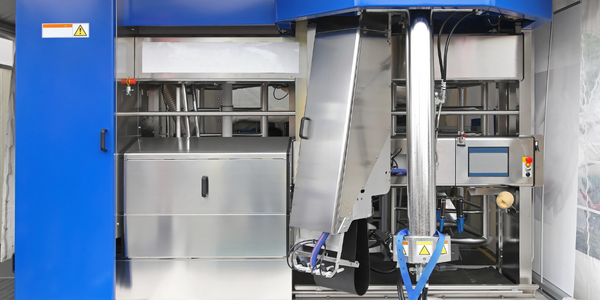Technology Category
- Platform as a Service (PaaS) - Application Development Platforms
- Robots - Wheeled Robots
Applicable Industries
- Agriculture
- Telecommunications
Use Cases
- Farm Monitoring & Precision Farming
About The Customer
Wefarm is a digital platform that aims to empower millions of small-scale farmers to realize their true economic potential as a global community. The platform ensures that these farmers can connect and share information with other farmers across all forms of available technology. It also enables them to access quality inputs at fairer prices through Wefarm’s retailer network, and earn more from the value chain than they currently do. Wefarm's vision is to support and educate farmers at scale, and it primarily uses SMS technology to achieve this goal.
The Challenge
Wefarm, a digital platform for small-scale farmers, was launched in 2015 with the vision of connecting these farmers with the resources and people they need to succeed. The majority of these farmers had mobile phones, but reliable mobile internet access was scarce. Therefore, Wefarm relied on SMS to increase the knowledge of its members, allowing them to ask questions and receive answers from fellow members. This bridged the gap between farming communities that were previously separated by geographical distance. However, as Wefarm planned to expand to other regions, it faced the challenge of finding a reliable global messaging provider to support its SMS-based platform.
The Solution
Wefarm chose Infobip’s two-way SMS solution due to its proven track record of fast and reliable delivery at scale. Infobip has direct connections to over 700+ mobile network operators, is compliant with all local telecom regulations, and provides 24/7 customer service. With this solution, farmers can text a Wefarm number in their country and register using their name. They can then ask questions, get answers, share knowledge, and access farming inputs in one of four languages, simply by texting their local number. This solution has enabled Wefarm to scale its platform and share the knowledge of millions of farmers.
Operational Impact
Quantitative Benefit

Case Study missing?
Start adding your own!
Register with your work email and create a new case study profile for your business.
Related Case Studies.
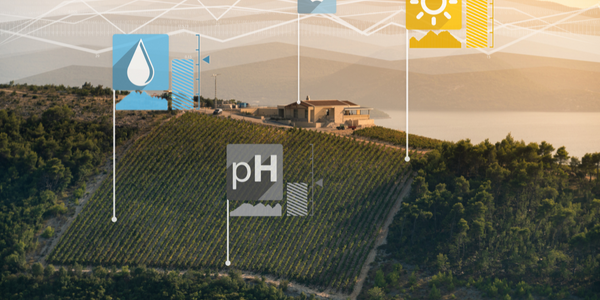
Case Study
Intelligent Farming with ThingWorx Analytics
Z Farms was facing three challenges: costly irrigation systems with water as a limited resource, narrow optimal ranges of soil moisture for growth with difficult maintenance and farm operators could not simply turn on irrigation systems like a faucet.
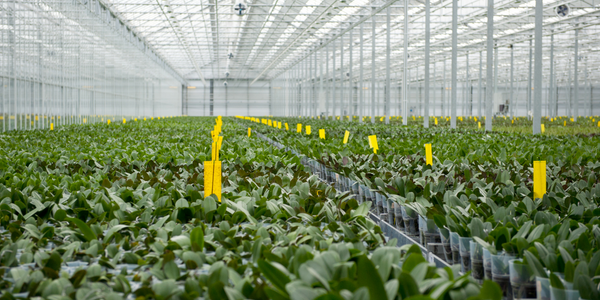
Case Study
Greenhouse Intelligent Monitoring and Control Solution
Farming Orchids is the most successful form of precision farming in Taiwan, and also the most exported flower. Orchids need a specific temperature and humidity conditions to grow and bloom, and its flowering time may not be in line with market demands, so the price collapses when there is overproduction. Therefore, some farmers began to import automated greenhouse control systems for breeding and forcing, which not only improves quality, but also effectively controls the production period and yield to ensure revenue. In 2012, an orchid farmer built a Forcing Greenhouse of about 200 pings (approximately 661 Square Meters) in Tainan, Taiwan. The system integrator adopted Advantech’s APAX-5000 series programmable automation controllers to build the control platform, coupled with Advantech WebAccess HMI/SCADA software, to achieve cloud monitoring. The staff of the orchid field can monitor important data anytime via smart phone, iPad, and other handheld devices, and control the growth and flowering conditions. System requirements: In the past, most environmental control systems of orchid greenhouses in Taiwan used PLCs (Programmable Logic Controller) with poorscalability and control, and could not be connected to the Internet formonitoring from the cloud. For advanced database analysis and networking capability, the PC platform must be adopted. Therefore, PAC Systems (Programmable Automation Controller) with both PLC programming capabilities andPC functions is a better choice.The environmental control of the Orchid greenhouse switches on and off devices like fan, shade net, cooling/heat pump, liquid flow control, water-cooling wall etc. It is controlled by a control panel of electric controllers, and is driven by a motor, to adjust the greenhouse temperature, humidity, and other environmental conditions to the set parameters.
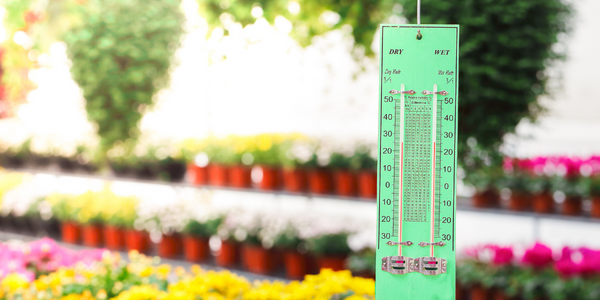
Case Study
Precision beekeeping with wireless temperature monitoring
Honeybees are insects of large economic value and provide a vital service to agriculture by pollinating a variety of crops. In addition, bees provide us with valuable products such as honey, beeswax, propolis, bee venom, etc. Monitoring of honeybee colony health, population, productivity, and environmental conditions affecting the colony health have always been exceedingly difficult tasks in apiculture. Research has shown that even small deviations (by more than 2°C) from the optimal temperatures have a significant influence on the development of the brood and the health of adult bees.
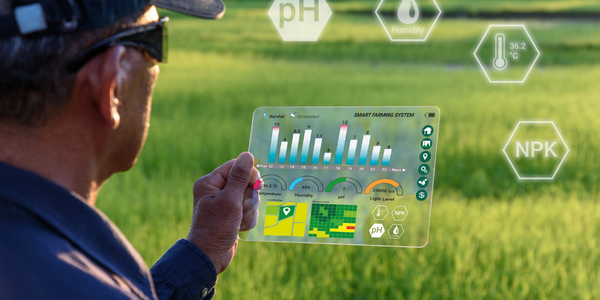
Case Study
Enabling Internet of Things Innovation in Agriculture
DigiBale, wanted to apply technology know-how and IP from implementations successfully to more agriculture sectors including cotton, forestry, sugarcane and cattle. However, farmers and growers still have worries about the connected technology.








